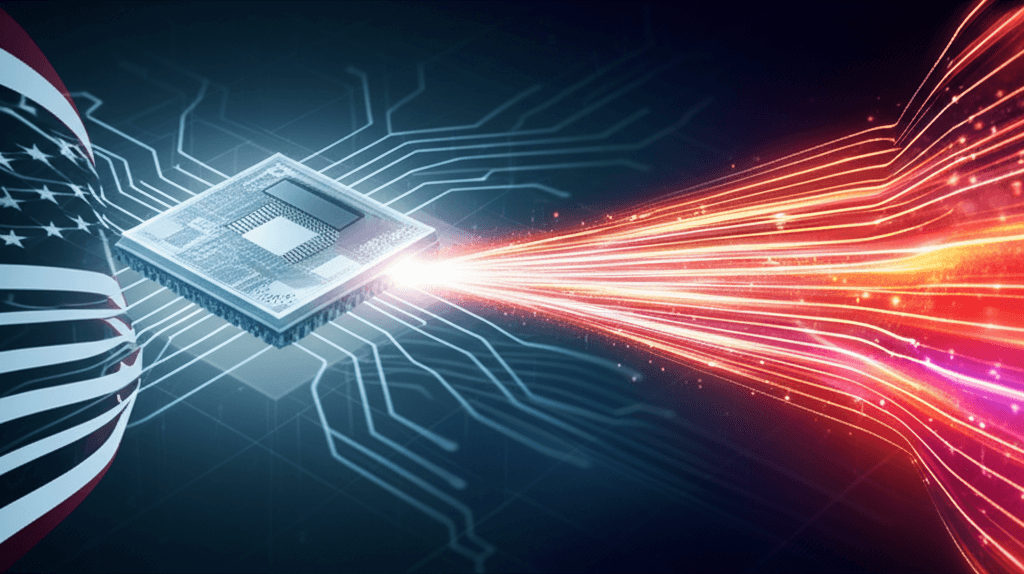Nvidia H20 Sales Spark Fierce US Debate Over China Military AI
Nvidia's H20 sparks a geopolitical firestorm: Is the AI chip empowering China's military or maintaining US tech influence?
July 28, 2025

A fierce debate has erupted in national security circles over the implications of Nvidia's H20 artificial intelligence chip, with a cohort of former U.S. officials and experts sounding the alarm that the technology will directly fuel the modernization of China's military. They contend that by supplying these powerful semiconductor chips, the United States is effectively equipping a strategic rival with critical components for developing advanced AI-driven warfare capabilities. This controversy places Nvidia, the world's leading AI chipmaker, at the center of a complex geopolitical struggle, balancing immense market opportunities in China against escalating national security concerns in Washington. The core of the issue lies in whether the H20, a chip specifically designed to comply with U.S. export controls, is sufficiently limited to prevent military use, or if it provides a dangerous leap forward for China's armed forces.
At the heart of the concerns voiced by critics is the specific technical prowess of the H20 chip. While Nvidia created the H20 as a less powerful alternative to its top-of-the-line H100 and B200 chips to adhere to U.S. export regulations, former officials argue it is far from outdated.[1] In an open letter to the U.S. Department of Commerce, twenty former national security officials and experts labeled the H20 a “potent accelerator of China's frontier AI capabilities."[1] They argue the chip's high memory bandwidth is a crucial feature for training large-scale AI models.[1] One expert, Jimmy Goodrich, a senior adviser at the RAND Corporation, described the H20 as "the gasoline fueling China's AI engine," emphasizing that its memory bandwidth surpasses any current domestic Chinese chip.[1] The group warns that these chips could be instrumental in developing autonomous weapons systems, sophisticated intelligence surveillance platforms, and rapid battlefield decision-making tools for the People's Liberation Army (PLA).[1][2] The fear is not just theoretical; a report from the House Select Committee on China revealed that the Chinese AI firm DeepSeek utilized H20 chips to develop a powerful AI model that rivaled U.S. competitors.[3][4][2]
The policy landscape governing the sale of these chips has been volatile, reflecting the deep divisions within the U.S. government on how to best manage the technological competition with China. The Trump administration initially banned the sale of H20 chips to China in April, an extension of controls implemented by the Biden administration to limit Beijing's access to advanced semiconductors.[3][5] However, in a significant reversal, Nvidia announced it had received approval from the Commerce Department to resume sales.[3][6][7] This decision was reportedly part of broader trade negotiations with Beijing, specifically linked to securing access to rare earth minerals.[3][8][9] The move has been sharply criticized by some lawmakers, including Representative John Moolenaar, Chairman of the House Select Committee on China.[3][4] Moolenaar has repeatedly warned that allowing the export of H20 chips poses a serious threat to U.S. national security and leadership in AI, stating that an American military defeat should not be enabled by Chinese AI advances built on American technology.[3][4]
In its defense, Nvidia and some policy analysts argue that restricting sales of chips like the H20 is a flawed strategy. Nvidia's CEO, Jensen Huang, has been a vocal critic of stringent export controls, arguing they inadvertently spur China to accelerate its own domestic chip development, potentially undermining America's long-term technological leadership.[10][11] By keeping Chinese companies reliant on the American technology stack, including Nvidia's widely-used CUDA software platform, the U.S. can maintain a strategic lever of influence and insight.[10][12] Proponents of this view argue that it is better for Chinese AI development to be built upon American platforms than for China to create a completely independent and potentially superior ecosystem, with companies like Huawei aggressively developing their own powerful AI chips.[10][13] The Commerce Department's decision to allow H20 sales has been defended by officials who state the goal is to have China continue using the American technology stack.[12] This perspective suggests a strategy of calculated dependency, where the U.S. provides slightly less advanced technology to prevent China from achieving full technological self-sufficiency.[8]
The controversy over the H20 chip highlights the precarious balance between economic interests and national security. For Nvidia, the Chinese market is substantial, and being locked out carries significant financial consequences.[10][11] The initial ban on the H20 forced Nvidia to write down billions in unsold inventory.[10][14] The resumption of sales restores a major revenue stream for Nvidia and other U.S. tech companies like AMD.[15][16] However, critics maintain that any economic gains are shortsighted if they come at the cost of eroding the United States' military and technological edge over China. The debate underscores a fundamental disagreement on the nature of the threat and the most effective way to counter it. One side sees the flow of any advanced technology to China as inherently risky, while the other believes that strategic engagement and maintaining market leadership is the smarter long-term play. As China continues to pour resources into its domestic semiconductor industry, the decisions made today about chips like the H20 will have profound and lasting implications for the future of global technology and security competition.[17][18]
Sources
[3]
[5]
[7]
[9]
[10]
[11]
[12]
[13]
[16]
[17]
[18]